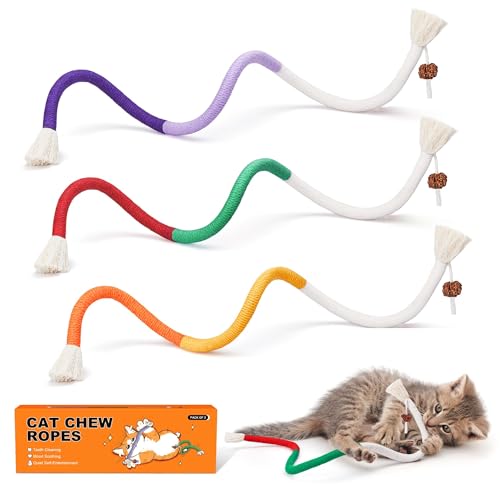Why is it important to know what cats can and cannot eat?
As a cat lover, it’s crucial to know what foods are safe for your furry friend. Cats have unique dietary needs, and not all human foods are suitable for them. Knowing what cats can and cannot eat helps keep them healthy and happy. Here’s why it’s important:
- Preventing digestive issues: Cats have delicate stomachs, and feeding them the wrong foods can lead to digestive problems like upset stomach, vomiting, or diarrhea. By being aware of what cats can and cannot eat, you can avoid these unpleasant and potentially dangerous situations.
- Avoiding nutritional deficiencies: Cats require specific nutrients in their diet to thrive. Feeding them foods that lack these essential nutrients can result in nutritional deficiencies, which can lead to serious health issues. By knowing what cats can eat, you can ensure they receive a balanced and adequate diet.
- Preventing toxic reactions: Some human foods may be safe for us, but they can be toxic to cats. Certain foods contain substances that are harmless to humans but can be harmful or even fatal to cats. For example, foods like onions, garlic, chocolate, and caffeine are toxic to cats and should never be given to them.
- Maintaining a healthy weight: Overfeeding your cat with inappropriate foods can lead to weight gain, which can contribute to various health problems such as diabetes and joint issues. Knowing what cats can eat helps you control their calorie intake and maintain a healthy weight.
- Promoting longevity and overall well-being: Providing your cat with a balanced diet that meets their nutritional requirements plays a vital role in their long-term health and well-being. By understanding what foods are safe for cats, you can contribute to their longevity and ensure they live a happy and healthy life with you.
Remember, always consult with your veterinarian before introducing any new foods into your cat’s diet. They can provide tailored advice based on your cat’s specific needs and dietary restrictions. By being knowledgeable about what cats can and cannot eat, you can be a responsible and caring cat owner.
Understanding the nutritional needs of cats
Cats are fascinating creatures with unique dietary requirements. As a cat lover, it’s important for you to understand their nutritional needs to ensure they live a happy and healthy life. Here’s what you need to know:
- Cats are obligate carnivores: Unlike humans or dogs, cats are obligate carnivores, which means they require a diet primarily made up of meat. Their bodies are designed to digest and absorb essential nutrients from animal protein.
- Protein is crucial: Protein is a key component of a cat’s diet. It helps support healthy growth, muscle development, and a strong immune system. Without enough protein, cats may experience muscle wasting and a weakened immune system.
- Taurine is essential: Taurine is a vital amino acid for cats that plays a significant role in maintaining good vision, heart health, and reproductive function. Unlike other animals, cats cannot produce enough taurine on their own and rely on dietary sources for this important nutrient.
- Nutrient balance is critical: Cats require a precise balance of nutrients to thrive. Essential vitamins, minerals, and fatty acids, such as omega-3 and omega-6, are necessary to maintain healthy skin, a shiny coat, and overall well-being.
While cats have specific nutritional needs, it’s important to note that not all human food is safe for them. For example, pepperoni, a popular cured meat, is not recommended for cats. It is high in fat, sodium, and spices that can upset their delicate digestive systems and potentially cause pancreatitis.
To ensure that your beloved feline friend receives the nutrition they need, it’s best to provide them with a balanced commercial cat food that meets all their dietary requirements. If you’re considering adding any new foods to your cat’s diet, it’s always a good idea to consult with your veterinarian first.
By understanding and meeting the nutritional needs of your cat, you can contribute to their longevity, happiness, and overall well-being. So, remember to prioritize their dietary health and choose cat-friendly foods to keep them purring with contentment.
The dangers of feeding pepperoni to cats
As a cat lover, it’s only natural that you want to share your favorite foods with your feline friend. However, when it comes to pepperoni, you should think twice before offering it to your cat. Although it might be tempting to give your kitty a bite of this tasty treat, it’s important to remember that cats have different nutritional needs than humans.
- High fat content: Pepperoni is high in fat, which can lead to weight gain and obesity in cats. Obesity can cause a range of health issues, including diabetes, arthritis, and heart problems.
- Sodium overload: Pepperoni is also loaded with salt. Cats have much lower tolerance for salt than humans do, and consuming excessive amounts of salt can lead to dehydration, kidney problems, and even salt poisoning.
- Spices and additives: Pepperoni contains spices like garlic and onions, which are toxic to cats. These spices can cause damage to your cat’s red blood cells, leading to anemia. Additionally, many pepperoni brands contain additives like sodium nitrate, which can be harmful to your cat’s health.
- Digestive issues: Cats have sensitive digestive systems, and feeding them foods that they’re not accustomed to can cause stomach upset, diarrhea, and vomiting. Pepperoni, being a processed meat, can be difficult for cats to digest.
It’s always best to stick to a balanced commercial cat food that meets your cat’s dietary requirements. These foods are specially formulated by experts to provide cats with the right balance of nutrients they need for optimal health. If you’re concerned about your cat’s diet or want to introduce new foods, consulting with a veterinarian is the best course of action.
Remember, as a responsible cat owner, it’s important to prioritize your cat’s health and well-being over sharing human treats like pepperoni. Your furry friend will thank you for it.
Can cats eat pepperoni in moderation?
When it comes to our beloved furry friends, we always want to make sure we’re feeding them the right things. While cats may be curious creatures, there are certain foods that can be harmful to their health. One such popular snack that you might be wondering about is pepperoni. So, can cats eat pepperoni in moderation?
Unfortunately, it’s best to steer clear of feeding your cat pepperoni altogether. While it may be tempting to share some of your delicious pizza toppings with your feline companion, pepperoni is not a suitable treat for cats. Here’s why:
1. High in fat and salt: Pepperoni is typically high in fat and salt, which can have negative effects on your cat’s health. Over time, consuming foods high in fat can lead to weight gain and obesity in cats. Excess salt intake can cause dehydration, kidney problems, and even salt poisoning. So, it’s important to keep these risks in mind when considering giving your cat pepperoni.
2. Spices and additives: Pepperoni contains spices and additives that are not safe for cats to consume. Some of these ingredients can be toxic to cats, leading to digestive issues and discomfort. These spices can also irritate their sensitive stomachs and potentially cause vomiting or diarrhea.
3. Nutritional imbalance: Cats require a balanced diet that meets their specific nutritional needs. Pepperoni does not provide essential nutrients that cats need to thrive. Feeding your cat pepperoni can disrupt their delicate nutritional balance, potentially leading to deficiencies or other health problems in the long run.
Remember, cats have different dietary requirements than humans, and it’s essential to provide them with a diet that caters to their specific needs. Stick to a balanced commercial cat food, specially formulated to meet their nutritional requirements. If you’re unsure about what is suitable for your cat’s diet or if you have concerns about introducing new foods, it’s always best to consult with your veterinarian. They can provide guidance tailored to your cat’s individual needs.
While it might be disappointing to deny your cat a taste of your pepperoni pizza, your furry friend’s health and well-being should always come first. So, aim to find healthier and safer alternatives to treat your feline companion.
Alternatives to pepperoni for cat treats
If you’re looking for some tasty treats to spoil your feline friend, there are plenty of options that are safe and nutritious for cats. While pepperoni might be off the table due to its high fat, salt, and toxic ingredients, there are alternatives that your cat will love. Treats are a great way to bond with your cat and provide them with a little extra joy in their day. Here are some healthy alternatives to consider:
- Chicken: Cooked chicken is a popular choice for cat treats. It’s lean, high in protein, and easy to digest. You can offer small pieces of cooked, boneless chicken as a special treat. Just be sure to remove any seasoning or skin before serving it to your cat.
- Fish: Cats are known for their love of fish, and it can make a great treat option. Cooked salmon, tuna, or whitefish can be offered in small portions. Make sure to remove any bones and avoid using canned fish that’s packed in oil or salt. Fish is a good source of omega-3 fatty acids, which can support your cat’s skin, coat, and overall health.
- Cat-specific treats: Many pet stores offer a wide variety of cat treats designed specifically for feline palates and nutrition. Look for treats that are made with high-quality ingredients and are free of artificial preservatives, colors, and flavors. These treats often come in different flavors and textures to keep your cat entertained.
Remember, treats should only make up a small portion of your cat’s total diet. It’s important to provide them with a balanced commercial cat food that meets their specific nutritional needs. Before introducing any new treats or food into your cat’s diet, it’s always a good idea to consult with your veterinarian to ensure it’s safe and suitable for your furry friend.
So, next time you want to give your cat a special treat, skip the pepperoni and opt for one of these healthier alternatives. Your cat will appreciate the love and attention, and you can have peace of mind knowing that you’re providing them with a safe and nutritious treat.
Conclusion
Understanding the nutritional needs of your cat is crucial for their overall health and well-being. Feeding your cat pepperoni is not recommended, as it can be harmful to their digestive system. Instead, opt for cat-friendly treats like cooked chicken, fish, or specially formulated cat treats.
Remember that treats should only make up a small portion of your cat’s diet. It is important to provide a balanced commercial cat food that meets their specific nutritional requirements. This ensures that they receive all the essential nutrients they need to thrive.
Before introducing any new treats or food into your cat’s diet, it’s always a good idea to consult with your veterinarian. They can provide guidance and help you make informed decisions about what is best for your cat’s health.
By prioritizing your cat’s nutritional needs and making informed choices about their diet, you are taking an important step towards ensuring their long-term health and happiness. Your furry friend will thank you for it!
Frequently Asked Questions
Q: Can I feed pepperoni to my cat?
A: No, it is not recommended to feed pepperoni to cats. Pepperoni is high in fat, salt, and spices that can be harmful to cats.
Q: What are some alternatives to pepperoni for cat treats?
A: Cooked chicken and fish are healthier alternatives to pepperoni for cat treats. Additionally, there are cat-specific treats available in pet stores that can provide a tasty and safe option for cats.
Q: How much of a cat’s diet should treats make up?
A: Treats should only make up a small portion of a cat’s diet. The majority of their diet should consist of a balanced commercial cat food that meets their specific nutritional needs.
Q: Should I consult with a veterinarian before introducing new treats or food to my cat’s diet?
A: Yes, it is always a good idea to consult with a veterinarian before introducing any new treats or food into a cat’s diet. They can provide guidance on what is safe and appropriate for your cat’s health and dietary needs.












